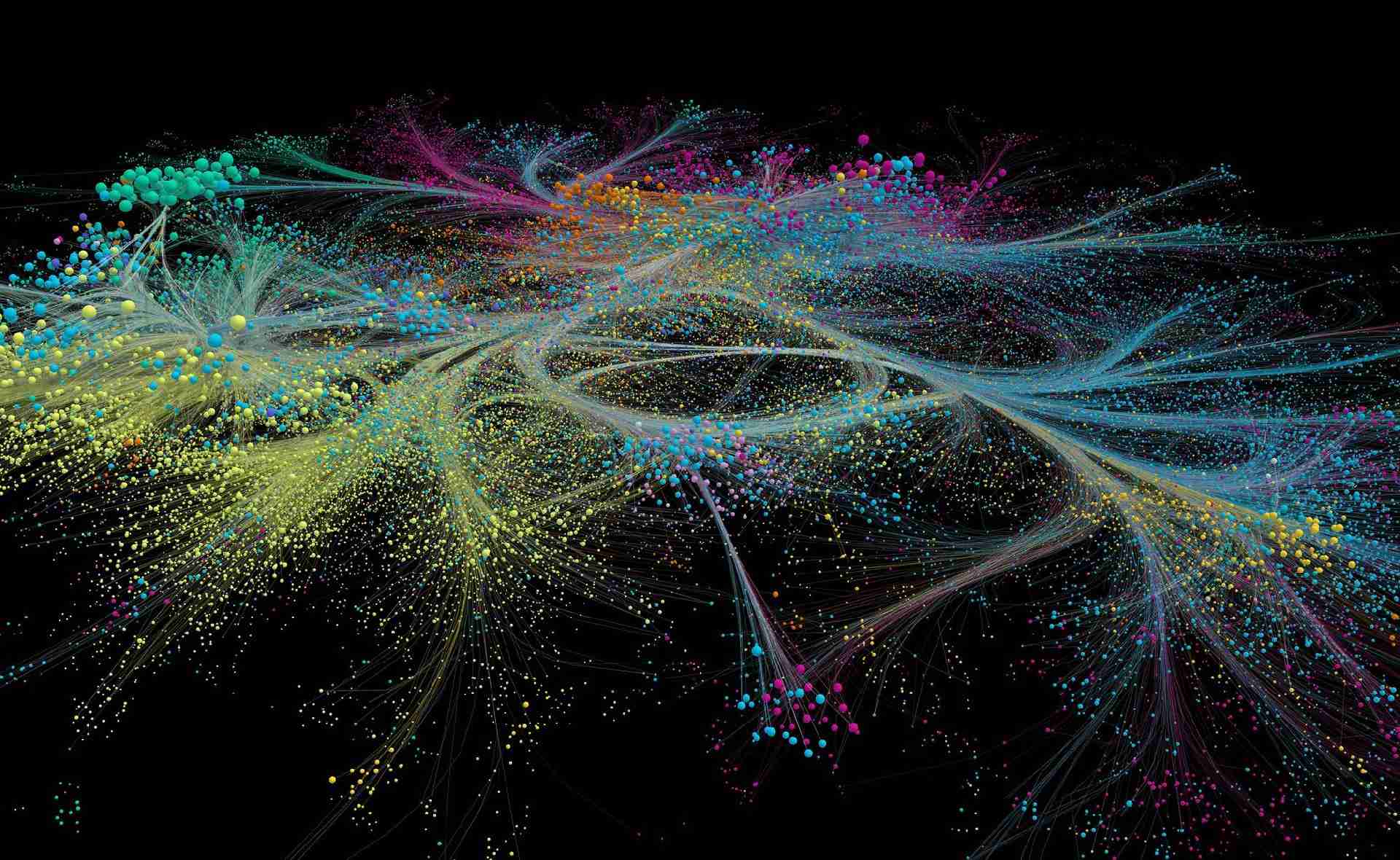The BarabásiLab, established by Albert-László Barabási in 2007, is a thirty-person lab dedicated to a deeper understanding of networks—how they emerge and evolve, what they look like, and how they impact our understanding of complex systems. CCNR’s research spans a wide range of subjects, from protein interactions within a cell to how distant galaxies interact in the cosmic web to what blend of access and performance leads to success in art.
The lab consists of postdoctoral researchers and students who are working toward their PhDs. They are physicists, computer scientists, neuroscientists, designers–even art historians. In addition to his theoretical breakthroughs in network science, Barabási and his lab are renowned for producing highly creative visualizations that depict the research findings in 2-D and 3-D models. Since 1995, when he presented a paper that included illustrations of an invasion network, Barabási has made the high-definition and highly interpretive visualization of his research central to his work. Examples of BarabásiLab’s visualizations have been shown before at the Serpentine Gallery in London and the Cooper Hewitt, Smithsonian Design Museum in New York City, and is the subject of a solo show BarabásiLab: Hidden Patterns. at the Ludwig Museum in Budapest, and opened in April at ZKM in Karlsruhe, Germany.

